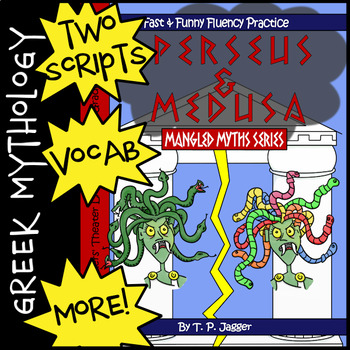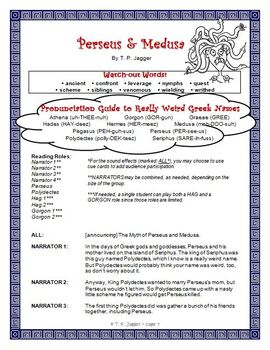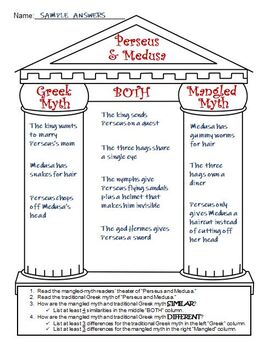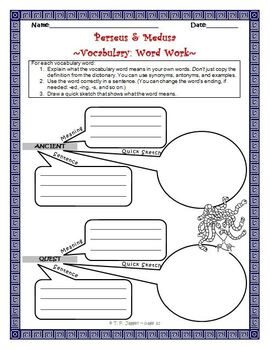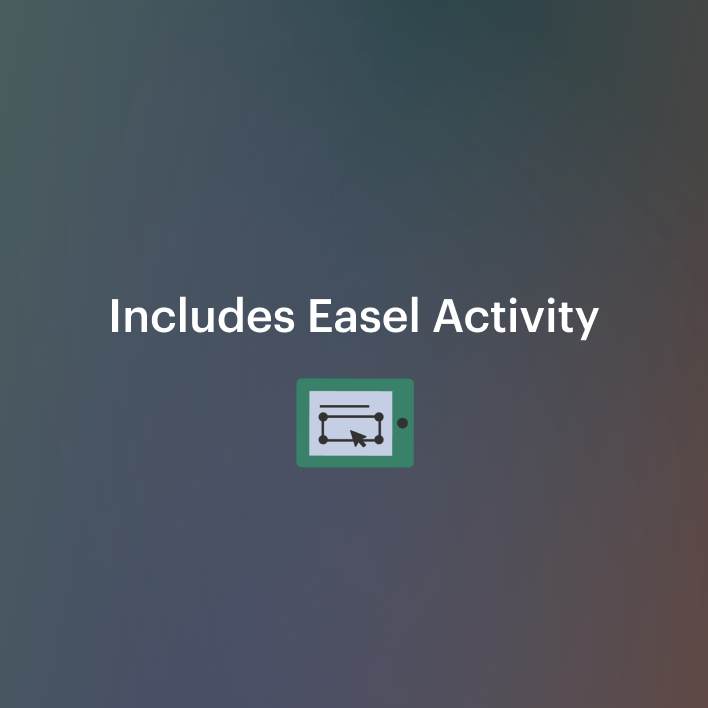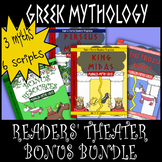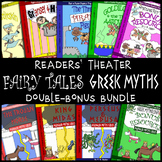Greek Mythology Readers Theater Scripts & Activities-Perseus & Medusa-Grades 3-6
- PDF
- Easel Activity
What educators are saying
Also included in
- Readers' Theater - Greek mythology readers' theater scripts for 3rd, 4th, 5th & 6th grades: This 156-page readers' theater Greek Mythology Bonus Bundle is a 6-script readers' theater collection for grades 3, 4, 5 & 6 that provides traditional and mangled-myth versions of the following GreekPrice $9.85Original Price $12.00Save $2.15
- Greek mythology readers' theater scripts and fractured fairy tales readers' theater, writing activities, and more for 3rd, 4th, 5th & 6th grades: This 10-script bundle includes four fractured fairy tales, three traditional (but funny!) Greek myths, and three corresponding mangled Greek myths reaPrice $19.95Original Price $27.00Save $7.05
Description
Perseus & Medusa Greek Mythology Readers' Theater Scripts for grades 3, 4, 5 & 6: A traditional (but funny!) Greek-myth version plus a "mangled myth" version for students in 3rd, 4th, 5th, & 6th grade.
This readers' theater literacy toolkit includes two readers' theater scripts, as well as other activities and resources aligned to the CCSS. It makes a great addition to a Greek mythology unit.
>"Perseus & Medusa: A Greek Myth": 6-page script for 4-10 readers
>"Perseus & Medusa: A Mangled Myth" (Medusa with gummy-worm dreadlocks!): 7-page script for 4-10 readers
>Sound Effects: Cue Cards
>Vocabulary: Word Work activity
>Greek Myth & Mangled Myth Compare & Contrast graphic organizer activity
>Readers' Theater Weekly Practice Checklist
>An overview of readers' theater & the four elements of fluent reading
Readers' theater is a terrific way to develop students' reading fluency, and students will enjoy this literacy toolkit that takes two different looks at the Greek myth of Perseus and Medusa.
The scripts include sound effects for which students may choose to include audience participation. Cue cards are provided that students can use to cue the audience for a unique, interactive readers' theater performance.
Each script also includes a "Pronunciation Guide to Really Weird Greek Names" and a list of “Watch-out words!” The "Watch-out words" feature highlights challenging words students may need help with as they practice. These words make terrific candidates for classroom vocabulary instruction.
If you choose to do script-based vocabulary instruction, the Word Work vocabulary activity uses four of the “Watch-out words!” that both scripts have in common. A Sample Answer Key is included.
If you want to strengthen students' Greek mythology reading comprehension skills, you can use the Greek Myth & Mangled Myth Compare & Contrast graphic organizer activity. A Sample Answer Key is included.
For a classroom reading block, readers’ theater can be used as a student-monitored station during small-group instructional time, and my literacy toolkit includes a Weekly Practice Checklist that provides a framework for students’ day-by-day practice.
A variety of tip and tricks and a basic overview of readers' theater are also provided, including information on the four essential components of reading fluency—accuracy, rate, phrasing, and expression.
In addition to these Perseus and Medusa readers' theater scripts and Greek mythology activities, I have many other scripts and readers' theater bundles:
* FAIRY TALES BONUS BUNDLE ~ SERIES 1
* READERS' THEATER MEGA BUNDLE OF SILLINESS

